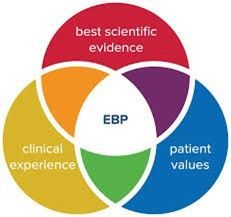Parental Stress and Foster Care: A Crucial Aspect Often Overlooked
The parent's overall well-being should serve as the foundational impetus for foster care agencies.

Imagine boarding an aircraft accompanied by your child. The flight attendant provides essential instructions regarding safety protocols, including the use of safety equipment, emergency procedures, seat belts, life vests, and other pertinent information. In the event of a loss of cabin pressure, it is explained that oxygen masks will descend for breathing. A crucial question arises: who should don the mask first, the parent or the child? For frequent flyers, it is a well-known guideline that the parent should secure their mask before assisting their child, as an incapacitated parent would be unable to aid their child effectively. This principle underscores a paramount truth: parents must prioritize their children's health and safety.
A similar paradigm should be applied to the foster care system. While foster care organizations actively recruit adults to serve as foster parents, there is a prevalent tendency to emphasize the needs of the child over those of the parent. A shift in focus is warranted, wherein the parent's well-being is recognized as equally significant.
As of 2024, approximately 390,000 children are placed within the foster care system in the United States, supported by around 212,000 licensed foster homes. Although there has been a decline in the number of children within the system over the years, the mental health challenges faced by these children have persisted. A staggering 41% of the children carry some form of mental health diagnosis, while 90% have encountered trauma at some point in their lives, resulting in substantial challenges for their foster parents.
These difficulties faced by the children do not exempt foster parents from their issues. Foster parents may be more susceptible to experiencing parenting stress, as well as their own mental and physical health challenges. The impact of foster care on their mental health is considerable, necessitating our understanding and support.
Given the obstacles foster parents encounter, whether they receive the requisite training warrants inquiry. Research indicates that when foster parents are equipped with validated parenting training interventions, they often demonstrate enhanced capabilities in managing complex child behaviors and mitigating parenting stress. These findings highlight the importance of instructing foster parents in positive parenting techniques and intervening when potentially harmful behavior modification strategies are endorsed.
Foster care training programs help foster care workers understand the children they support. These courses cover critical topics such as trauma-informed care, crisis intervention, behavioral management, educational support for children, and substance use.
However, one must question how many of these training modules adequately address strategies for managing parental stress. While foster care and mental health agencies provide programs, such as Incredible Years, Triple P, and Parent-Child Interaction Therapy (PCIT), which focus on parenting skills, they often overlook the principal concern: the stress experienced by foster parents.
Furthermore, between 25% and 50% of foster parents concurrently raise their biological children alongside fostering, yet these biological children typically do not face the same mental health challenges as foster children. Consequently, foster parents may lack the necessary skills to address the complexities that accompany these vulnerable children. As the obstacles intensify, foster parents may begin to isolate themselves, grappling with feelings of guilt and embarrassment regarding the foster child—a sentiment parallel to the stigma faced by biological parents of children with mental health concerns.
Another significant issue facing foster parents is the constraint on their time. The foster care system imposes substantial demands, with frequent home visits, appointments for the foster child, and meetings with county social workers and various professionals. For those already under stress before fostering, these additional responsibilities can exacerbate financial and familial strains.
In light of these challenges, foster care training programs must incorporate a curriculum that addresses the needs of parents. Courses focusing on stress management, assertive communication, building supportive systems, child development, mental health diagnoses, advocacy, and parenting skills will equip parents with comprehensive tools to navigate their responsibilities effectively.
Ultimately, prioritizing the needs of the parents will reinforce their capacity to act as caregivers while promoting the health of their foster children. The parent's overall well-being should serve as the foundational impetus for foster care agencies.




